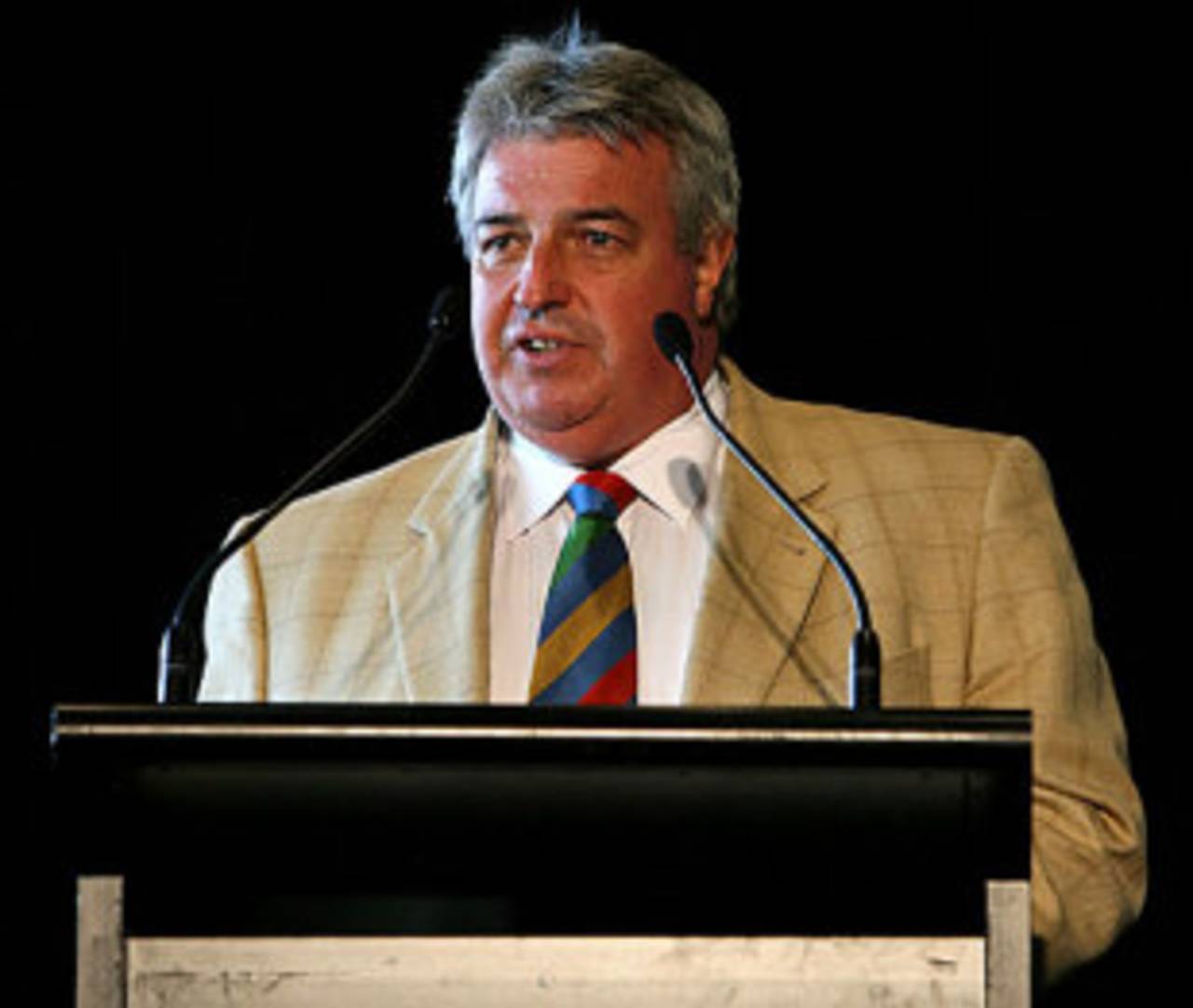Jack Clarke, the departing Cricket Australia chairman, has marked his final days in the post by defending the performances of the outgoing chairman of selectors Andrew Hilditch and the former national coach Tim Nielsen.
Wally Edwards, the former Australia batsman, will take over at the conclusion of CA's board meeting on Friday, as Clarke ends a tenure that started in 2008.
Speaking at CA's annual general meeting in Melbourne, Clarke said Hilditch in particular had been the victim of "unfair media and public criticism" during his time as head of the selection panel, which began in 2006.
"Andrew Hilditch, a fine servant of Australian cricket who has responded graciously to unfair media and public criticism, leaves centre stage following a long period as a selector since 1996-97 and as chairman of the National Selection Panel since 2006," Clarke said. "Having recommended that the role become full-time, he has stood aside to concentrate on his private legal practice.
"During Andrew's time as a selector, Australian cricket achieved unparalleled success including three ICC World Cups, two ICC Champions Trophies and numerous Test series victories."
Clarke also argued that many of Nielsen's achievements, since becoming the head coach in 2007, had been "overlooked".
"Tim's achievements as coach in a difficult period of transition following the retirement of so many champions of the game have largely been overlooked," Clarke said. "He ensured we remained the No.1-ranked ODI team, guided the T20 outfit to the final of the 2010 ICC World T20 in the West Indies and won nine out of 15 Test series, and drew two other series."
Clarke was the first CA chairman to hold the position full-time and so spend a far greater share of time as a figurehead for cricket in Australia but also CA's representative on the ICC executive board.
In 2010 Clarke was behind a bid to have John Howard installed as the ICC's vice-president and ultimately president, and was bitterly disappointed when the move was blocked by other nations, in apparent defiance of the ICC's previously adopted policy of accepting the nomination of member countries on a rotational basis.
Looking over the ICC's future, Clarke said the issues of corruption and governance had to be tackled firmly.
"Stepping down as CA chairman also means standing down as CA's representative on the ICC board," Clarke said. "The ICC has had a challenging year tackling corruption as a major issue and is also undertaking a governance review. Cricket's ambition to be a major world sport will be significantly influenced by the ICC succeeding with both these issues."
Describing the final 12 months of his chairmanship as a "year in review", Clarke expressed satisfaction that numerous changes had been wrought in the quest for sustainable success for both the national team and the game in Australia.
He also said the review of Australian cricket's governance, being conducted by David Crawford and Colin Carter, would be in a position to submit its findings by the end of the year.
"While Australian cricket is often judged by its Ashes performances and Test cricket more generally, the reality is that CA has numerous other strategic aims that we use to measure success," Clarke said. "Winning the Ashes is naturally a priority but it is not the sole focus.
"Growing participation levels to ensure cricket's future and ensuring cricket remains accessible and attractive to all Australians is equally as important as our Test results. It is also critical that cricket generates sufficient revenue to appropriately fund the game at all levels."
Daniel Brettig is an assistant editor at ESPNcricinfo
